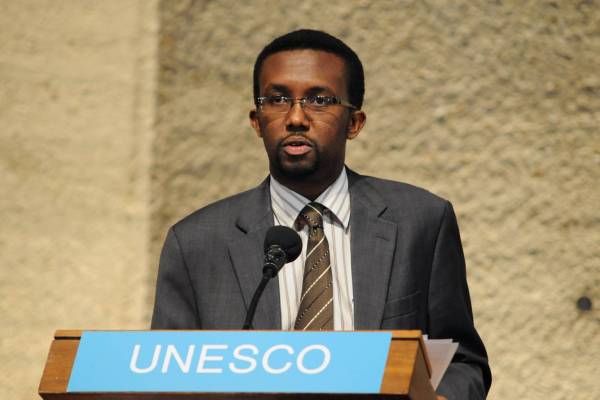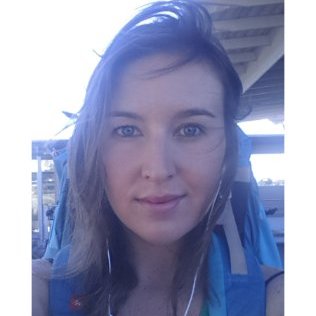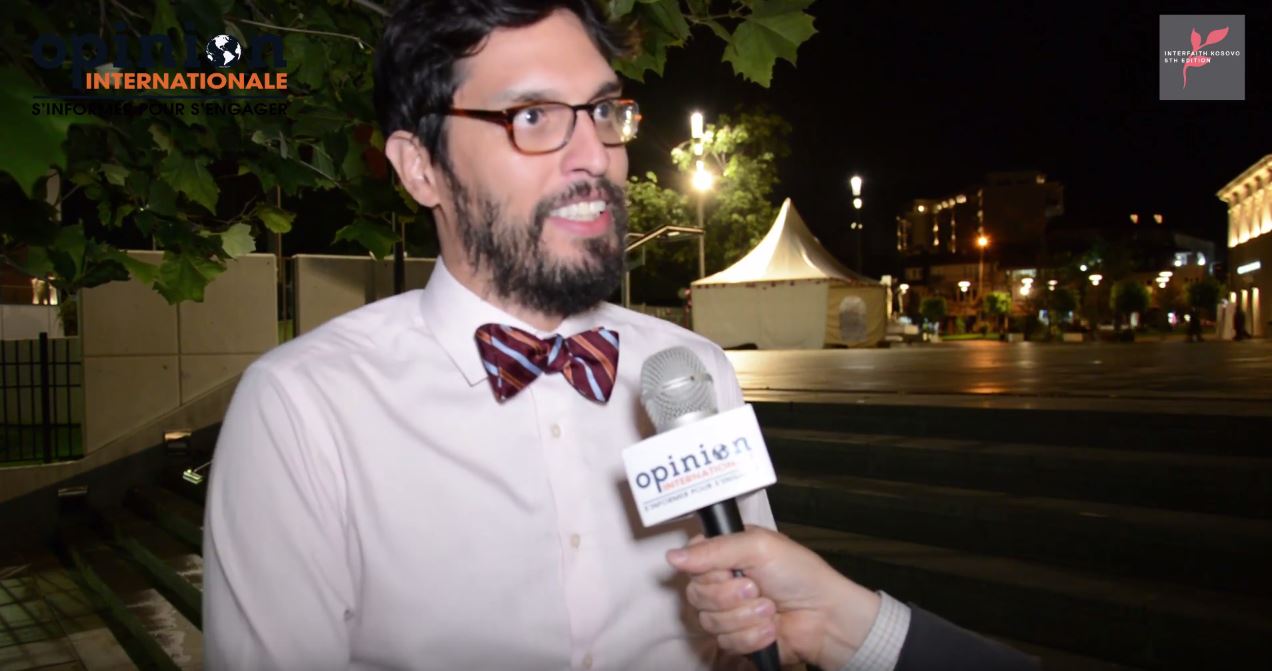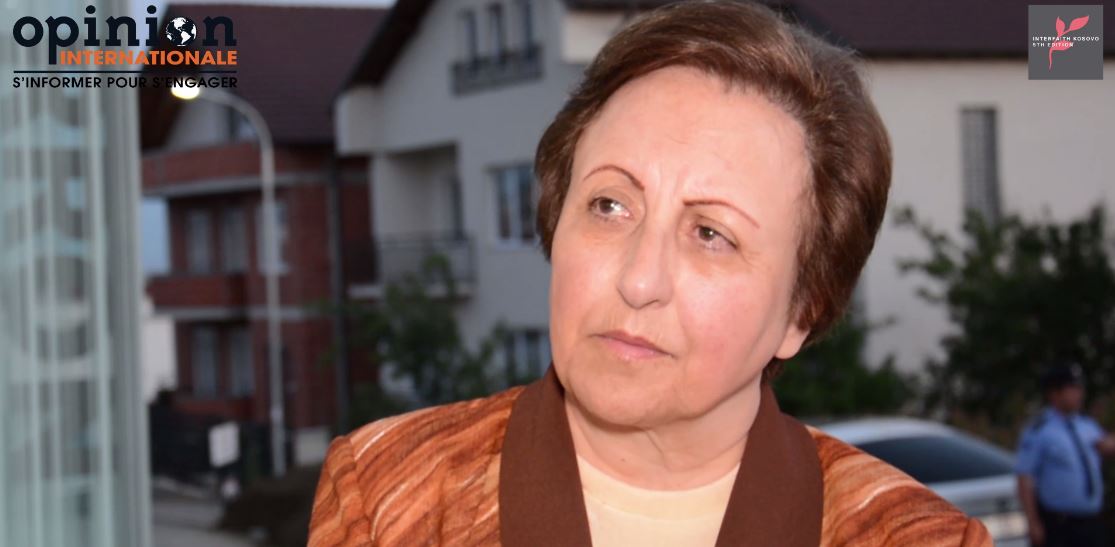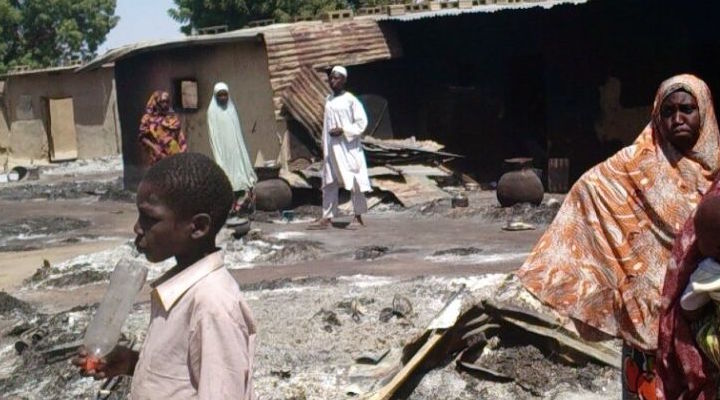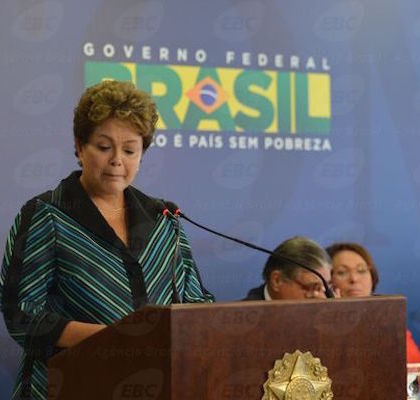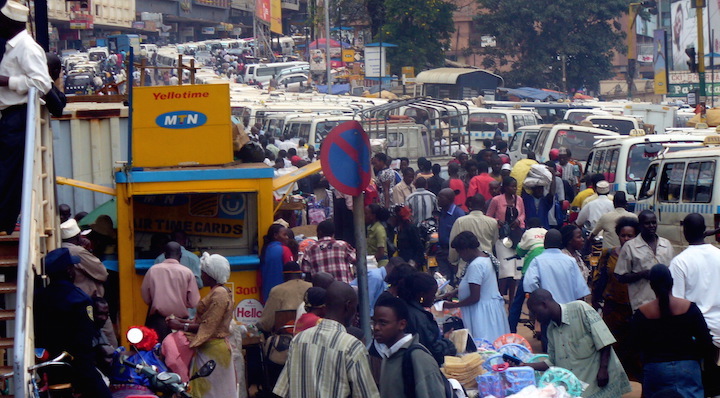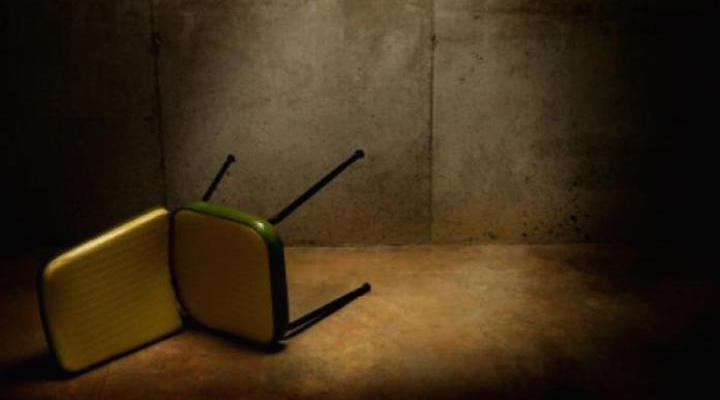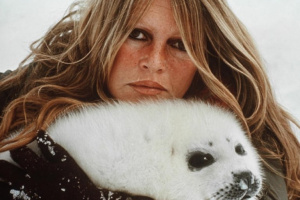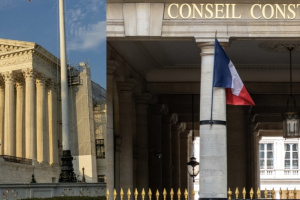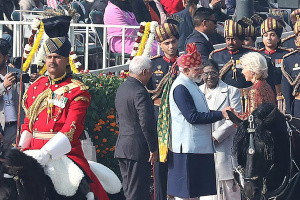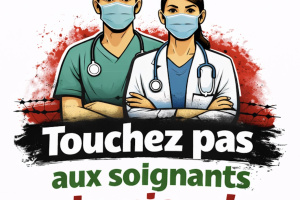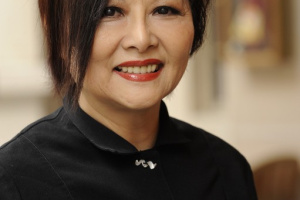Omar Faruk Osman is the Secretary General of the National Union of Somali Journalists (NUSOJ). As more attacks and repression against journalists and media professionals are reported every year and all over the world, he tells us about the fight for press freedom in Eastern Africa, focusing on the country he knows best: Somalia. This tireless activist exposes the challenge of ending impunity in a region where law enforcement is nothing but a daydream.
On November 28, you were attending the World Human Rights Forum (FMDH) in Morocco, during which Séamus Dooley said that “journalism [was] under threat, [that] Journalists should always be the arrow and not the target”. How can you explain the fact that journalists have become such victims over the past two decades?
More journalists are killed year in year out. And they are killed just because they are practicing journalism profession. Journalists are targeted for telling uncomfortable truth, exposing corruption and giving voice to voiceless people whose governments are suppressing them.
In conflict countries, like Somalia, journalists are targeted in order to send a message which shows that a particular armed group is still active because killing a journalist will be top headline in the media and perpetrators commit this crime for the sake of publicity.
In armed conflicts, journalists are targeted by both sides of the conflict. For instance again, Somalia, Islamist extremists regard journalists as “traitors” to their religion because journalists refuse to be propaganda for extremists while the government sees journalists as unpatriotic for not helping their country through their pen.
In peaceful countries, journalists are also targeted in the name of national security. So journalism, to me, has become the most dangerous profession on this earth. No other professional is targeted like journalists are.
How do you explain the fact that East Africa is “the worst region in Africa for freedom of expression”, as you said in Morocco during the FMDH?
Somalia is the deadliest country for journalists in Africa and Eritrea is the worst jailer of journalists. Ethiopia is another problematic country for press freedom where 17 journalists are currently imprisoned. When most of killed African journalists were killed in Eastern Africa and most of imprisoned African journalists are detained in Eastern Africa, sadly Eastern Africa has earned the name of being the worst region for freedom of expression.
Most of the journalists killed in Africa were killed in Somalia just for practicing their profession. Those who are killed are broadcast journalists and they are male journalists. Other professionals are not targeted.
Most of the murders in Somalia imply firearms. Would gun laws change anything according to you?
There is no rule of law in Somalia at all, let alone law on guns. If they cannot enforce any law, what kind of law can they enact to be implemented?
What will be the biggest challenges regarding freedom of expression in Somalia in the next few years?
The major challenge facing Somalia is to end impunity and tackle safety crisis facing journalists. It is also ending the attacks on journalists and ensuring there is accountability for anyone who commits crime against journalists.
Accurately, the General Assembly of the UN decided to proclaim 2 November as the “International Day to End Impunity for Crimes against Journalists”. Maybe journalists can expect changes from this #EndImpunity campaign?
Unless there is political will and concrete actions by duty bearers, who are governments, we do not expect much to change in 2015 because the culture of impunity has become so rampant in many countries. Writing and publishing news and information from independent sources has become deadly because no other profession does a publication or a broadcast that reach out to masses.
Interview by Mélina Huet





